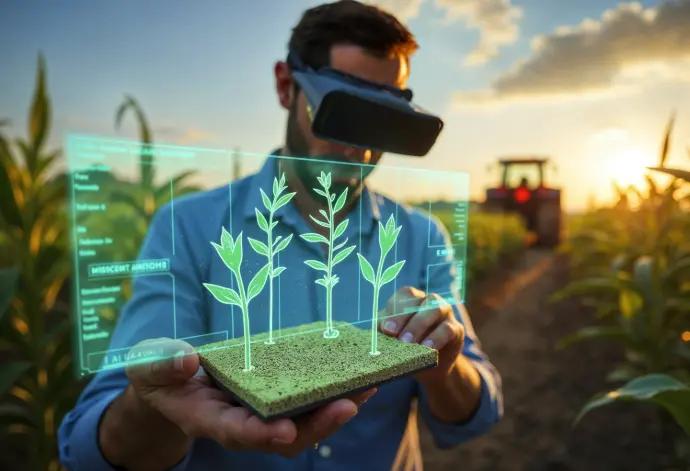Information Technology in Agriculture and Environment
This degree is ideal for students passionate about technology, sustainability, and agriculture. It prepares them to lead the digital revolution in farming and environmental conservation, ensuring relevance in a rapidly evolving global job market. By combining hands-on IT training with agronomic principles, graduates will be at the forefront of solving 21st-century challenges in food security and climate resilience.
For a greener, smarter future—powered by technology.
The Bachelor’s program in “IT in Agriculture and Environment” is a cutting-edge interdisciplinary degree designed to equip students with the technical and practical skills needed to drive digital transformation in agriculture and environmental management. By integrating information technology (IT), automation, and data science with traditional agricultural sciences, this program addresses critical challenges such as labor shortages, climate change adaptation, and sustainable resource management. Graduates will emerge as innovators capable of implementing smart farming solutions, precision agriculture, and environmental monitoring systems to modernize the sector.
This program aims to:
-Provide specialized knowledge in IT applications for agriculture and environmental sustainability, including farm management software, IoT devices, drones, and AI-driven analytics.
- Foster innovation and digital automation to enhance productivity, reduce waste, and optimize resource use (e.g., water, soil, energy).
-Bridge the skills gap in the labor market by training professionals who can merge agronomic expertise with advanced IT competencies.
-Empower farms and agribusinesses to adopt automated solutions (e.g., robotic harvesters, smart irrigation) to counteract labor shortages.
Graduates will gain expertise in:
1. Digital Tools for Agriculture: Proficiency in farm management software, IoT sensors, GPS-guided machinery, and drone technology for crop monitoring.
2. Precision Agriculture: Application of satellite imagery, AI, and sensor networks to analyze soil health, predict yields, and minimize environmental impact.
3. Smart Farming Practices: Implementation of automated systems like livestock feeding robots, climate-controlled greenhouses, and data-driven pest control.
4. Data Analytics and GIS: Skills to collect, process, and interpret agricultural and environmental data using cloud computing, geospatial mapping (GIS), and Python/R programming.
Graduates can pursue roles as:
-Agri-Tech Specialists in companies developing solutions for precision farming, food safety, or environmental monitoring.
-Public Sector Experts managing e-governance systems for agriculture, veterinary services, or environmental protection agencies.
-Consultants or Entrepreneurs offering IT-driven solutions to farms, such as automation services or decision-support platforms.
The three-year program blends natural sciences, technical IT courses, and social sciences:
-1st Year: Foundational courses in physics, mathematics, agriculture technologies, climatology, and basic IT (60 ECTS).
-2nd Year: Advanced training in agricultural mechanization, big data, geospatial technologies, and environmental information systems (60 ECTS).
-3rd Year: Specialization in automation, precision farming, digital governance, and a thesis project (60 ECTS).
Aligned with international standards (Muster Curricula), the program balances:
-Natural Sciences (15 ECTS): physics, mathematics, informatics, meteorology, etc..
-Technical Sciences (70 ECTS): automation, mechatronics, precision agriculture, programming.
-Social Sciences (15 ECTS): economy, agricultural policy, rural sociology, and agribusiness management.
